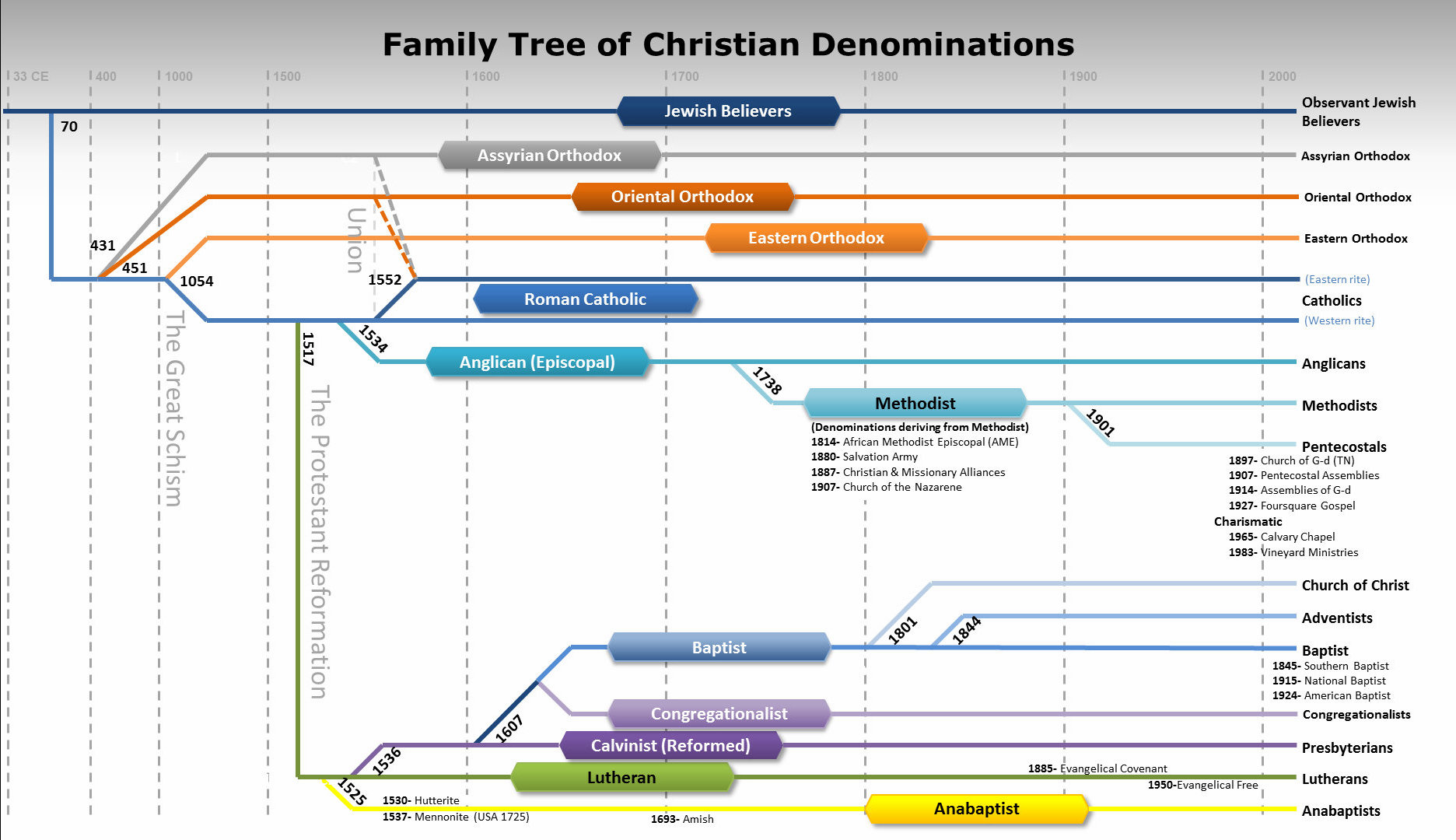
This week’s devotions are based on the Week 8 “Explore God” – What is a Lutheran? (WATCH HERE)
Over the past weeks we have looked at seven key questions about the Christian faith. Perhaps after all these questions are answered, the confusion of sorting through the many Christian denominations becomes the real challenge. In any given community there is a Catholic Church, Baptist, Presbyterian, Church of Christ, Anglican, Methodist, Calvary Church, non-denominational and more.
So how does one sort out and find a church that will support and grow their faith and their relationship with God? What is the difference between all the different Christian churches? If you google this question, you may find a summary chart that is helpful, but what I find helpful in answering this question is to trace the history of all the denominations back to their origins in the “family tree of denominations.” When you see the major breaks in the lineage, one can ask, “What happened there?” By understanding the issues behind the reason for the breaks in the line, I can find it helpful to understand the basic differences between Christian denominations. Today’s devotion isn’t going to answer every detail, but this week, let’s touch on some of the major issues and understand the Lutheran position on them.
Disclaimer: These devotions are not to negate the possibility of true believers in other Christian churches, but to highlight very important differences that have potential to mislead people away from Christ.
1517 is the year marked as the “Protestant Reformation.” Since it was initiated by Martin Luther, we as Lutherans call it the “Lutheran Reformation.” 🙂 As one can see most of mainline protestant churches were offshoots of the initial work done by Martin Luther.
Martin Luther was raised in a Catholic home. He grew up in the Catholic Church and was well aware of the tenets of that theology. The Pope was the ultimate head. The works of penance must be done to achieve satisfaction for sin. The Church was the authority and to question that authority was tantamount to entering the fires of hell. As a young man, he was caught in a thunderstorm and made a vow that if he survived, he would enter a monastery and become a monk. Monasticism was viewed as the ultimate work of faith as one put off the material temptations to simply focus on the spiritual life. However, as Luther engaged in the full effort of being a monk, he found his conscience more troubled and his relationship with God more filled with fear. The harder he worked to appease God the more guilty he felt. He found no rest for his soul in the works of his life.
How is one right with God became a key question Luther wrestled with. Fortunately, as a monk, he had access to a Bible and was also invited to teach theology in the University of Wittenberg. As he read the Scripture, he discovered a righteousness that is by faith in Jesus Christ. But what does one do when the authority of the Pope, the decrees of the church and the utterances of the Councils contradict the Scripture? What is the ultimate authority for the faith and life of a believer?
This was a second question that Luther wrestled with, “What or who is the ultimate authority for faith and life?” Perhaps a third question that was present was “How do the works of Christ become mine personally” – i.e. the matter of faith.
Still to this day these key questions of 1517 are questions that must be asked today. As we delve into these questions this week, we will also see they are still important questions to have answered as we look for a Christian Church. The answers that Luther discovered have become not just the Lutheran answer, but the biblical answer. After all, Luther settled his heart in the amazing truths of Scripture.
John 17: 17 Sanctify them by the truth; your word is truth.
Apply: What has helped you find a church to support you in your spiritual growth and confidence of faith in Jesus?
Prayer: Lord, thank you for faithful servants like Martin Luther who were willing to risk their lives for the sake of the Gospel and the truth of your Word. Help us to have the same boldness and courage in our generation. AMEN.
